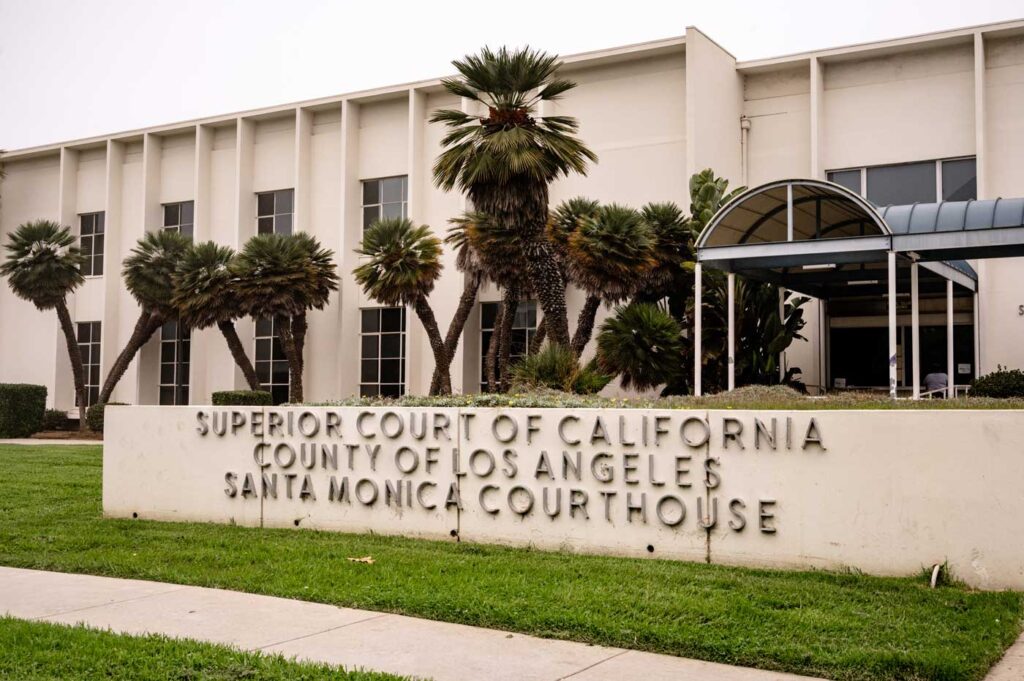In today’s complex workplace environment, understanding and protecting your employment rights is more crucial than ever. As a Los Angeles employment lawyer serving the diverse communities of Southern California, Yoosefian Law Firm, P.C. is committed to helping workers navigate the intricate landscape of employment law and workplace disputes.
Los Angeles Employment Cases We Take
At Yoosefian Law Firm, P.C., we represent clients across Los Angeles and California in various employment law matters. As your Los Angeles employment attorney, we handle the following types of cases:
- Wage & Hour Claims: We pursue compensation for unpaid overtime, minimum wage violations, meal/rest break denials, and commission disputes. This includes cases involving travel time compensation and improper tip pooling practices.
- Overtime Violations: We handle cases where employers fail to pay proper overtime rates or misclassify employees to avoid overtime payments. This includes addressing systematic overtime violations and off-the-clock work requirements.
- Workplace Discrimination: We represent clients facing discrimination based on age, gender, race, religion, disability, pregnancy, sexual orientation, or national origin. Our team addresses both individual and systemic discrimination cases.
- Sexual Harassment: We tackle all forms of workplace sexual harassment, including quid pro quo propositions and hostile work environment claims. This covers both physical and verbal harassment incidents.
- Wrongful Termination: We fight for employees fired due to discrimination, retaliation, or in violation of public policy. This includes constructive discharge cases where working conditions forced resignation.
- Disability Accommodation: We address cases where employers fail to provide reasonable accommodations for physical or mental disabilities. This includes handling return-to-work disputes and medical leave violations.
- Family & Medical Leave: We represent clients denied their rights under FMLA and CFRA, including pregnancy disability leave and military leave violations. This covers both leave denials and retaliation for taking approved leave.
- Workplace Retaliation: We protect employees who face adverse actions after reporting illegal activities, safety violations, or participating in investigations. This includes whistleblower protection cases.
- Employment Contracts: We handle disputes involving non-compete agreements, severance packages, commission structures, and executive compensation. This includes reviewing and negotiating employment agreements.
- Independent Contractor Misclassification: We represent workers incorrectly classified as independent contractors rather than employees. This includes pursuing claims for misclassified workers’ denied benefits and protections.
- Class Action Claims: We manage large-scale employment cases involving systematic violations affecting groups of employees. This includes wage and hour class actions and pattern-or-practice discrimination cases.
- Hostile Work Environment: We address cases where persistent workplace conduct creates an intimidating, offensive, or abusive atmosphere. This includes cases of workplace bullying and persistent harassment.
- Commission Disputes: We handle cases involving unpaid commissions, altered commission structures, and disputed sales territory rights. This includes addressing retroactive changes to commission plans.
- Meal & Rest Break Violations: We pursue cases where employers deny workers their legally required meal and rest periods. This includes claims for premium pay when breaks are missed or interrupted.
We represent clients facing discrimination based on age, gender, race, religion, disability, pregnancy, sexual orientation, or national origin. Our team addresses both individual and systemic discrimination cases.
- Race, color.
- Ancestry, national origin.
- Religion, creed.
- Age (40 and over)
- Disability, mental and physical.
- Sex, gender (including pregnancy, childbirth, breastfeeding or related medical conditions)
- Sexual orientation.
- Gender identity, gender expression.
Our commitment at Yoosefian Law Firm, P.C. extends beyond just handling these cases – we strive to achieve the best possible outcomes for our clients while ensuring their rights are protected throughout the legal process. If you’re experiencing any of these workplace issues in Los Angeles, contact our team to discuss your situation and explore your legal options.
Signs You May Need To Hire a Los Angeles Employment Lawyer
At Yoosefian Law Firm, P.C., we often hear from workers who weren’t sure when to seek legal help. Here are clear signs that indicate it’s time to consult a Los Angeles employment attorney:
- Wrongful Termination Signs: Your employer fired you shortly after you reported workplace violations, took medical leave, or refused to participate in illegal activities. Timing and circumstances matter in these cases.
- Paycheck Irregularities: Your pay stubs show missing overtime hours, unexplained deductions, or your regular pay doesn’t match your worked hours. Even small discrepancies can add up to significant violations.
- Harassment Continues: You’ve reported workplace harassment to HR or management, but the behavior continues or has gotten worse. Documentation of your reports is crucial.
- Discriminatory Patterns: You notice you’re being treated differently from coworkers based on your age, race, gender, religion, or other protected characteristics. This includes being passed over for promotions or assignments.
- Medical Leave Issues: Your employer refuses to grant medical leave, pressures you to return early, or retaliates after you take legally protected time off. This includes pregnancy-related leave.
- Workplace Accommodation Denials: Your reasonable requests for disability or religious accommodations are denied without proper justification or interactive dialogue.
- Contract Violations: Your employer breaks promises made in your employment agreement, changes terms without notice, or refuses to honor bonus or commission structures.
- Hostile Work Environment: You face ongoing intimidation, offensive comments, or inappropriate behavior that makes it difficult to perform your job duties.
- Classification Problems: Your employer misclassifies you as an independent contractor despite treating you like an employee, denying you benefits and protections.
- Retaliation Signs: After filing a complaint or participating in an investigation, you face adverse actions like schedule changes, reduced hours, or sudden performance criticisms.
- Safety Concerns: Your workplace ignores serious safety violations, and you face pressure to work in dangerous conditions or without proper protection.
- Severance Issues: You’re offered a severance agreement that seems unfair or requires you to waive important rights without proper compensation.
- Wage Theft Indicators: Your employer requires off-the-clock work, denies breaks, or fails to pay for all hours worked, including training or preparation time.
- Benefits Denial: You’re unfairly excluded from health insurance, retirement plans, or other benefits that similar employees receive.
- Sudden Job Changes: Your position, responsibilities, or work location change dramatically without proper notice or apparent business justification.
- Group Violations: You notice similar violations affecting multiple coworkers, potentially indicating systematic workplace violations.
- Performance Review Manipulation: Your previously positive performance reviews suddenly become negative without clear justification, especially after protected activities.
- Bonus or Commission Disputes: Your earned bonuses or commissions are withheld, calculated incorrectly, or subject to newly imposed conditions.
- Privacy Violations: Your employer improperly shares your personal information or requires access to private social media accounts.
- Workplace Investigation Issues: You’re excluded from work opportunities or treated differently after participating as a witness in a workplace investigation.
Red Flags That Demand Immediate Attention:
- Direct threats to your job for exercising legal rights
- Physical safety risks or immediate dangers
- Clear evidence of wage theft or payment manipulation
- Explicit discriminatory statements or actions
- Sexual harassment or assault
- Direct orders to participate in illegal activities
At Yoosefian Law Firm, P.C., we recommend documenting these signs as they occur:
- Save relevant emails and messages
- Keep detailed notes with dates and times
- Maintain copies of important documents
- Record names of witnesses present
- Screenshot or photograph relevant evidence
- Track patterns of behavior or treatment

How a Los Angeles Employment Lawyer Can Help
At Yoosefian Law Firm, P.C., we provide comprehensive legal support for employees throughout Los Angeles. Here’s how we assist our clients:
- Case Evaluation: Our team conducts thorough assessments of your situation, reviewing documentation and identifying potential legal violations. We help you understand the strength of your case and available options.
- Legal Strategy Development: We create customized legal strategies based on your specific circumstances and goals. Each case receives individualized attention to maximize potential outcomes.
- Documentation Review: Our attorneys carefully examine employment contracts, emails, performance reviews, and other relevant documents to build strong supporting evidence for your case.
- Workplace Investigation: We conduct detailed investigations into your claims, gathering evidence, interviewing witnesses, and documenting violations to support your position.
- Compensation Calculation: We accurately calculate all forms of compensation owed, including unpaid wages, overtime, benefits, and potential damages. This ensures you seek full recovery for your losses.
- Administrative Filings: We handle all necessary paperwork with government agencies, including EEOC complaints, DFEH filings, and Labor Commissioner claims. We ensure compliance with strict filing deadlines.
- Direct Negotiation: Our attorneys negotiate directly with employers and their legal teams, protecting your interests while pursuing fair compensation. We handle all communication to prevent potential retaliation.
- Settlement Evaluation: We provide clear guidance on settlement offers, explaining their terms and implications. Our team ensures you understand your options before making decisions.
- Court Representation: When necessary, we provide strong representation in court proceedings, including filing lawsuits, handling discovery, and presenting your case effectively.
- Class Action Assessment: We evaluate whether your case might affect other employees similarly, potentially leading to class action litigation for systematic violations.
- Clear Communication: Our team maintains regular contact, providing updates on your case and promptly responding to your questions and concerns.

California Worker Rights
At Yoosefian Law Firm, P.C., we want to ensure you understand your exact rights under California law. Here are the key statutes protecting California workers:
- Fair Pay and Wages (Labor Code § 200-243): Minimum wage requirements may vary depending on city or county ordinances. Employers must comply with the local minimum wage rate applicable to their location, which could be higher than the statewide minimum of sixteen dollars ($16.00) per hour, effective January 1, 2024.
- Overtime (Labor Code § 510): “Depending on the type of work and industry, eight hours of labor constitutes a day’s work. Any work in excess of eight hours in one workday and any work in excess of 40 hours in any one workweek… shall be compensated at the rate of no less than one and one-half times the regular rate of pay for an employee.”
- Equal Pay (Labor Code § 1197.5): “An employer shall not pay any of its employees at wage rates less than the rates paid to employees of another race or ethnicity for substantially similar work, when viewed as a composite of skill, effort, and responsibility, and performed under similar working conditions.”
- Meal Periods (Labor Code § 512): “An employer may not employ an employee for a work period of more than five hours per day without providing the employee with a meal period of not less than 30 minutes…”
- Rest Periods (Labor Code § 226.7): “The Industrial Welfare Commission may adopt or amend working condition orders with respect to break periods, meal periods, and days of rest for any workers in California consistent with the health and welfare of those workers.”
- Sick Leave (Labor Code § 246): “An employee who, on or after July 1, 2015, works in California for 30 or more days within a year from the commencement of employment is entitled to paid sick days…”
- Family and Medical Leave (CFRA, Gov’t Code § 12945.2): “It shall be an unlawful employment practice for any employer… to refuse to grant a request by any employee… to take up to a total of 12 workweeks in any 12-month period for family care and medical leave.”
- Workplace Safety (Labor Code § 6400): “Every employer shall furnish employment and a place of employment that is safe and healthful for the employees therein.”
- Anti-Discrimination (FEHA, Gov’t Code § 12940): “It shall be an unlawful employment practice… for an employer, because of the race, religious creed, color, national origin, ancestry, physical disability, mental disability, medical condition, genetic information, marital status, sex, gender, gender identity, gender expression, age, sexual orientation, or veteran or military status of any person, to refuse to hire or employ the person…”
- Retaliation Protection (Labor Code § 1102.5): “An employer, or any person acting on behalf of the employer, shall not retaliate against an employee for disclosing information… the employee has reasonable cause to believe… discloses a violation of state or federal statute…”
- Privacy Rights (Labor Code § 435): “No employer may cause an audio or video recording to be made of an employee in a restroom, locker room, or room designated by an employer for changing clothes, unless authorized by court order.”
- Personnel Files (Labor Code § 1198.5): “Every employee has the right to inspect and receive a copy of the personnel records that the employer maintains relating to the employee’s performance or to any grievance concerning the employee.”
- Workplace Violence Protection (Labor Code § 6400.1): “Every employer shall adopt a workplace violence prevention plan to protect employees from aggressive and violent behavior in the workplace.”

Recent Changes in California Employment Law
At Yoosefian Law Firm, P.C., we keep our clients informed about significant changes in California employment law. Here are the key recent developments affecting Los Angeles workers and employers:
- Minimum Wage Updates “Minimum Wage Updates: California’s minimum wage increased to $16.00 per hour for all employers effective January 1, 2024. However, specific cities and counties, like Los Angeles, have local minimum wage requirements that may exceed the state minimum. Employers should verify the local minimum wage for their area to ensure compliance.”
- Pay Transparency Requirements: Employers must now provide pay ranges in job postings and maintain records of job descriptions and wage history. Current employees can request pay range information for their position.
- Expanded Leave Protections: The definition of “family member” for paid sick leave and family care leave has expanded to include designated persons, giving workers more flexibility in caregiving responsibilities.
- Workplace Safety Changes: New requirements for workplace violence prevention programs and emergency response protocols are now mandatory across various industries.
- Non-Compete Agreements: California has strengthened its prohibition on non-compete agreements, requiring employers to notify current and former employees that such agreements are void.
- Privacy Protection: Enhanced data privacy requirements now apply to employee and job applicant information, with stricter rules on data collection and storage.
- Remote Work Regulations: New guidelines clarify employer obligations for remote workers, including expense reimbursement and workplace safety requirements.
- Reproductive Health Rights: Additional protections against discrimination based on reproductive health decisions, including expanded privacy safeguards.
- Cannabis Use Protection: Employment protections for off-duty cannabis use, with restrictions on pre-employment drug testing for non-safety-sensitive positions.
- Bereavement Leave: Mandatory bereavement leave is now required, allowing eligible employees time off following the death of family members.
What To Do If Your Employee Rights Have Been Violated in California
Document Everything Immediately
Begin a detailed record of all workplace violations as soon as they occur. Create a written timeline of incidents with dates, times, locations, and witnesses present. Save relevant emails, messages, photos of unsafe conditions, and any paperwork connected to the violation. Your documentation serves as crucial evidence if legal action becomes necessary.
Review Company Policies
Examine your employee handbook and workplace policies thoroughly before taking action. Know your company’s grievance procedures, reporting protocols, and internal resolution processes. Understanding these policies ensures you follow proper channels and strengthens your position if further action becomes necessary.
Submit Internal Reports
Report violations through your company’s established channels, maintaining copies of all communications. Put your complaints in writing and request confirmation of receipt. A clear record of internal reporting demonstrates your good faith efforts to resolve issues through proper procedures.
Maintain Professional Performance
Continue executing your job responsibilities effectively while addressing workplace violations. Keep records of your work quality and positive feedback. Strong performance documentation helps protect against potential retaliation claims and demonstrates that any adverse actions aren’t performance-related.
Gather Supporting Evidence
Collect documentation that validates your case, including company policies, employment agreements, pay records, and time sheets. Note potential witnesses and preserve any evidence of the violation. This evidence forms the foundation of any future legal action.
Seek Medical Documentation
Obtain medical records if workplace violations affect your health or well-being. Visit healthcare providers when necessary and maintain records of all treatments and recommendations related to workplace issues. Medical documentation establishes the direct impact of violations on your health.
Know Legal Deadlines
Understand the time limits for filing workplace complaints and legal claims. Different violations have varying statutes of limitations. Prompt action within these deadlines preserves your legal rights and options for remedy.
Consult Employment Counsel
Contact us early in the process. Professional legal guidance helps avoid costly mistakes and develops effective strategies for addressing violations. Early consultation often leads to stronger cases and better outcomes.
File Administrative Complaints
Submit necessary complaints to appropriate government agencies within required timeframes. Different violations may require filing with specific state or federal organizations. Proper filing preserves your rights and opens additional avenues for resolution.
Track Potential Retaliation
Record any changes in workplace treatment following your complaint. Document modifications to assignments, schedules, or workplace relationships. This information becomes vital if retaliatory actions occur.
Plan Financial Security
Assess your financial position while addressing workplace violations. Review savings, benefits, and employment alternatives. Financial preparation enables informed decisions about legal action and settlement considerations.
Pursue Legal Resolution
If internal resolution fails, take appropriate legal action. Based on your specific situation, consider options like lawsuits, mediation, or arbitration. Each approach offers different advantages that should be evaluated with legal counsel.
Protect Your Workplace Rights Today
Don’t let workplace violations go unchallenged. At Yoosefian Law Firm, P.C., we offer confidential consultations to evaluate your case and explain your legal options. Contact our Los Angeles office today to speak with a dedicated employment law attorney who will fight for your rights.

Los Angeles Employment Lawyer FAQs
How long do I have to file a workplace discrimination claim in Los Angeles? Generally, you must file a discrimination claim with the California Civil Rights Department (CRD) within three years of the discriminatory act. After receiving a right-to-sue notice, you have one year to file a civil lawsuit.
Will my employer know if I consult with an employment lawyer?
All consultations with Yoosefian Law Firm, P.C. are completely confidential. Your employer will not be notified when you seek legal advice about your workplace rights.
Should I sign a severance agreement without having it reviewed?
Never sign a severance agreement without legal review. These documents often contain complex legal terms and rights waivers that require careful evaluation to ensure your interests are protected.
What should I bring to my first meeting with a labor lawyer?
Bring any relevant documents, including your employment contract, pay stubs, correspondence about the issue, performance reviews, and any evidence of the violation. Also prepare a written timeline of important events.
Can an employer punish me for discussing my salary with coworkers?
No, California law specifically protects your right to discuss wages with other employees. Any retaliation for such discussions is illegal under state labor laws.
Do I need to disclose my salary history to a potential employer?
California law prohibits employers from requesting or considering your salary history when making hiring or compensation decisions. They must provide pay scale information upon reasonable request.
How do I know if I’m properly classified as an independent contractor?
California uses the ABC test to determine proper classification. All three of these conditions must be met: you’re free from company control, perform work outside the company’s usual business, and are independently established in that trade.
Can my employer require me to speak only English at work?
English-only rules are permitted only when justified by business necessity and properly noticed by employees. Blanket English-only policies are generally illegal in California.
What compensation can I receive in a successful employment lawsuit?
Potential compensation may include back pay, front pay, reinstatement, emotional distress damages, and sometimes punitive damages. Each case is unique and damages depend on specific circumstances.
Does my employer have to provide references when I leave?
California employers are not required to provide references. However, if they do, they must avoid making intentionally false statements about former employees.
Can I record conversations with my employer to prove violations?
California requires all parties to consent to recording conversations. Recording without consent could be illegal and might harm your case rather than help it.
If I quit my job, can I still file a workplace complaint?
Yes, leaving your job does not forfeit your right to pursue legal action for violations that occurred during your employment, though certain deadlines still apply.
What makes a hostile work environment legally actionable?
The conduct must be severe or pervasive enough to create an abusive work environment and must be based on a protected characteristic like race, gender, age, or disability.
At Yoosefian Law Firm, P.C., we understand each employment situation is unique. Contact our office to discuss your specific workplace concerns and legal options.

